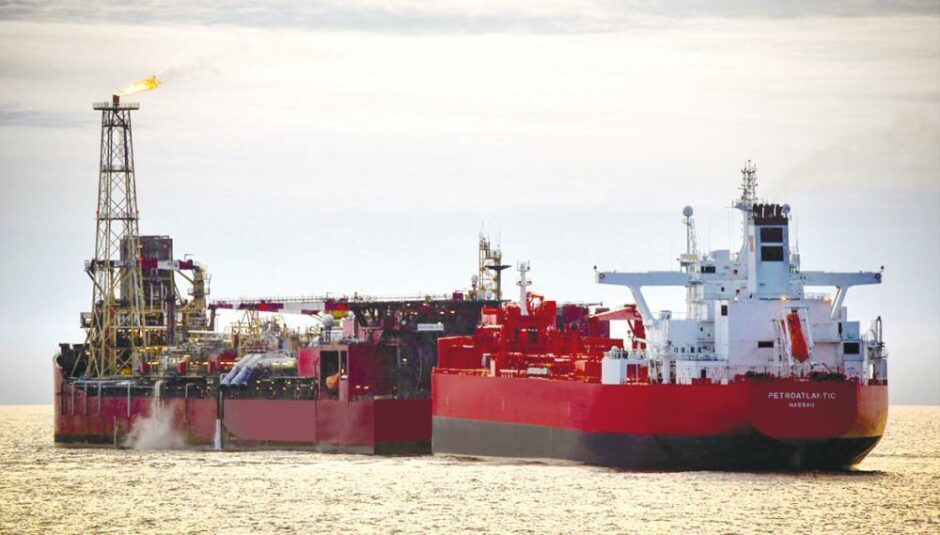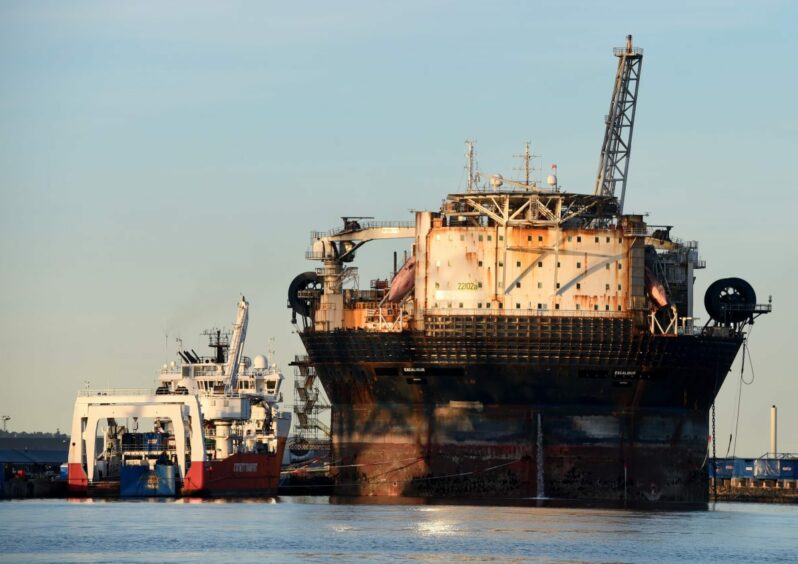
Ping Petroleum helped maintain profits for its parent DNeX last quarter, as higher oil prices and production helped offset declines in other areas of the group.
Malaysia-listed Dagang NeXchange Berhad (DNeX) reported revenue of 331 million (£62m) last quarter – a six per cent decline on the same period last year – though remained in profit, with pretax earnings of 81m ringgit (£15.2m).
However, the group’s energy division – comprised of UK-Malaysian oil and gas producer Ping Petroleum – reported a 36% bump in revenue, which the firm attributed to higher crude oil prices and production volumes during the quarter.
DNeX reported “an almost six-fold increase” in pre-tax profits from the energy firm, which generated some 80.1m ringgit (£15m) in profits during the quarter – up from 13.4m (£2.5m) the year before.
This was largely due to the reinstatement of risers at the Anasuria Cluster last autumn. Operated by Anasuria Operating Company – a joint venture of Ping and fellow Malaysian firm Hibiscus Petroleum – the cluster includes the Teal, Teal South, Guillemot A and Cook fields, produced via the eponymous FPSO.
In May 2021, one of the pipes that connects the vessel to the subsea well malfunctioned. The riser was isolated from the primary production system, leading to lower overall daily production – but was replaced and returned to service last September.
Hibiscus too reported boosted quarterly performance as a result.
It comes in the wake of Ping’s success in Malaysia’s 2022 bid round (MBR), in which it secured its two debut production sharing contracts (PSCs) in the country.
The first covers the development and production of oil and gas resources in the Meranti cluster located 80 km offshore Kuala Terengganu, in which Ping will act as operator with 60% interest, while Duta Marine holds the remaining 40%.
The second PSC is for the development and production of oil and gas resources in the A Cluster located 290 km off the coast of Miri, Sarawak. Ping is the operator of the A Cluster with 70% participating interest, while Petroleum Sarawak Exploration & Production holds the remaining 30%.
“These new assets will diversify Ping’s portfolio with long term growth opportunities and varying risk profiles. The Group will leverage on its track record of being a low-cost upstream producer of late-life assets and innovator in marginal field development to maximise the economic potential of these assets,” DNeX said in its results statement.
Commenting on the group’s quarterly performance, DNeX executive chairman, Tan Sri Syed Zainal Abidin Syed Mohamed Tahir said the results reflected “a weaker external demand on the back of recession fears.”
“However, we remain focused on expanding our market presence globally to build resiliency and sustain growth in the long term, despite the challenging economic conditions. We are committed to leveraging our strengths and capabilities to deliver value to our stakeholders, and we believe that our diversified portfolio and strategic initiatives will enable us to weather the current uncertainties and emerge stronger in the future.”
Meanwhile, Ping has made clear its plans to press ahead development of the 23-million-barrel Avalon field in the UK North Sea.
Ping is developing Avalon in partnership with Cerulean Winds, which will provide a wind turbine to power the Excalibur FPSO production vessel used at the field.
 © Sandy McCook / DC Thomson
© Sandy McCook / DC Thomson